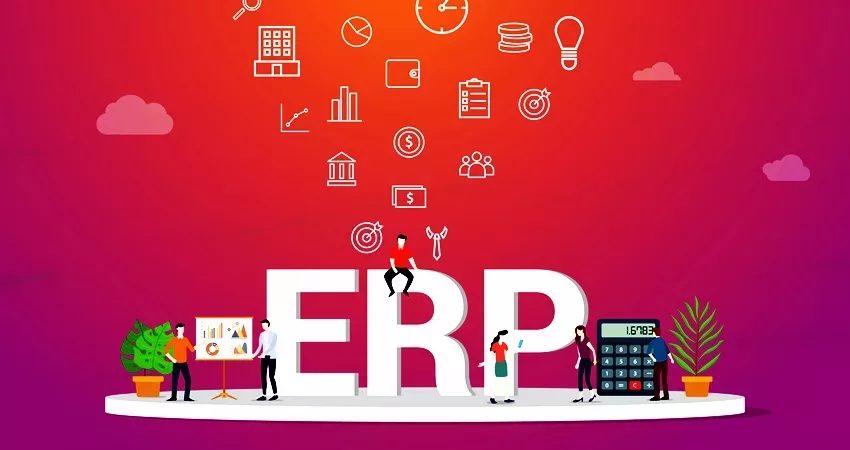Since the birth of Enterprise Resource Planning (ERP) in the late 1980s, it has been integrated, updated, and evolved from its original form.
Now ERP provides an up-to-date functioning plan to small, medium & large business processes while automating entries to finance and reporting within the enterprise.
It is a standardized software package, devised to integrate the internal activities of an enterprise.
Currently, these five major ERP vendors control almost 50% of the ERP market:
- SAP
- Oracle
- Peoplesoft
- SAGE
- Microsoft Business Solutions
What is a Next-Generation ERP system?
The transformation of ERP has led to the origin of what we call the “next-generation ERP System.”
ERP in its core is reaching operational excellence and process efficiency while keeping everything in real-time as much as possible.
The Next-Generation ERP systems are progressively integrating with new and emerging technologies such as:
- Cloud
- AI
- Machine Learning
- Internet of Things
- Blockchain
The vision of ERP II is based upon intelligent ERP systems built on a considerably big, curated data set to forecast, track, learn, route, analyze, report, manage, and predict resources and financial and management processes.
Next-generation ERP is capable of analyzing and acting on a massive pile of data in real time, using in-memory technologies and cloud-based techniques.
Next-Generation ERP Benefits and Applications
- Advanced Planning
- Mobility and globalization
- Cloud ERP
- A structured approach
- Real-time decision making
- Cost-effective
- AI and Machine Learning integration
- Flexibility and User Experience
With the current business evolution pace, organizations cannot afford to ignore the transformative analytics and decision-making techniques of next-generation ERP.
The traditional ERP structure was very much one-dimensional and monolithic. According to a study conducted by the American Institute of CPAs (AICPA) and Oracle,
The SAP Suite, S/4HANA, is a perfect example of how ERP is advancing. The “in-memory analytics” concept used by the SAP HANA database speeds up the query and searches almost in real time.
The other notable highlight of the new HANA is its appliance-based deployment model.
Furthermore, the SAP HANA also has its own Cloud Platform and certified CSPs.
The next-gen ERP is a perfect example of a Hybrid IT strategy with one leg on the Cloud and other On-premise systems.
ERP’s cloud model thus allows a coexisting deployment.
Also, the measured transition helps to ease the implementation of the new ERP with cloud deployment.
Compared to earlier times budgeting has become more reasonable and individualized with respect to functions and requirements.
The development cycles have become shorter in comparison to traditional ERP products.
Moreover, the new product’s debugging and its placement in the market has stimulated.
The upgrading, replacing, or maintaining the old, with a new system is now less costly and complicated.
The cumulative data and information are now allowing ERP II to be more customer-oriented and flexible.
Thus, it mitigates the risk of large-scale transitions with the componentized cloud-based implementation.
Next-generation ERP is rapidly climbing up the path of full-scale globalization and mobility.
Managing multiple teams all over the world with a modern approach and handling Customer Relationship Management (CRM) with Human Capital Management (HCM).
Being on the Cloud, the information and resources are unbiased with transparent functioning. The data is instantly updated and accessible on the system with a lot fewer maintenance concerns.
You May Also Like To Read-
How Does Natural Language Processing (NLP) Help Chatbots?

